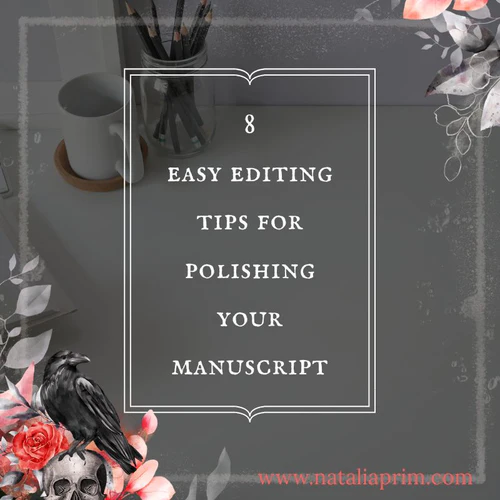Editing is the bane of any writer’s existence, #thisisknown. However, it doesn’t have to be an entirely fraught endeavor!
Here are a few tips for editing a manuscript:
1. Print out a hard copy of your manuscript and read through it with a pen or pencil in hand. This will allow you to physically make changes and annotations to the text. Clearly, this is the largest undertaking, but there’s something to be said about pencil to paper. For some, this is the only way they’ll ever edit.
2. Start by checking for any spelling or grammatical errors. If you prefer to keep things in a digital format, the single greatest tool in any writer’s arsenal is spellchecker. Use a spell-checking tool, but also be sure to proofread carefully, as spell-checking tools may not catch all errors.
3. Look for consistency in formatting, such as font and text size, and make sure headings and subheadings are used consistently. This is especially important in this day and age, when you have formatting programs such as Vellum, Calibre, Atticus, et. al, which look for the tag code (getting wiggy here, I know, hang with me) when converting the document to e-reader format. If you have a chapter header tagged as a subtitle, it might cause issues. This is typically only addressable when you’re using Word or Pages, where you can assign a formatting preset to some text.
4. Check for continuity errors, such as inconsistencies in character or plot development.
5. Remove any unnecessary or repetitive words or phrases.
6. Use the active voice as much as possible to make your writing more engaging and direct. I could do an entire blog post on active vs. passive, (and probably will) so lets assume for the purposes of this article, you already know the difference.
7. Consider reading your manuscript backwards to focus on the sentence-level language and avoid getting caught up in the story. This may feel like a freaky tip, but honestly, it really can work. We tend to gloss over words and phrases, especially when we already know the story by heart. Doing this can trick the brain into seeing what’s actually there. Eh? Snazzy, right?
8. Finally, get feedback from beta readers or a professional editor. This will provide you with valuable insight and help you improve your manuscript.
I’ll have another post about finding your very own ARC/beta team very soon!

